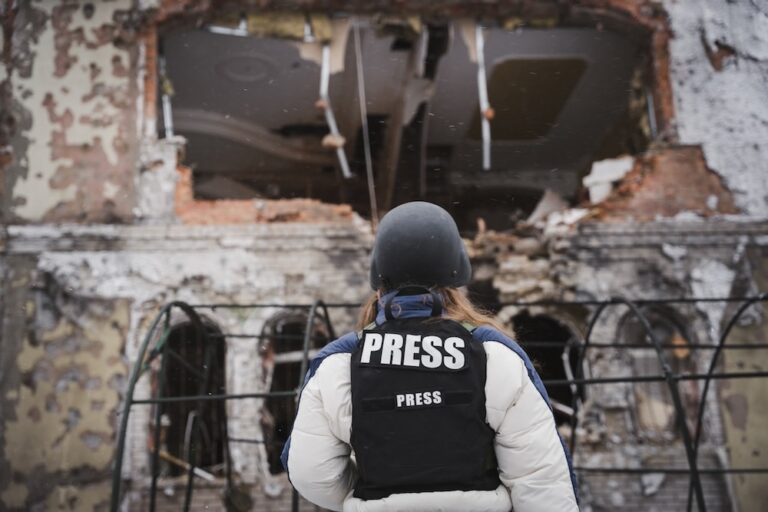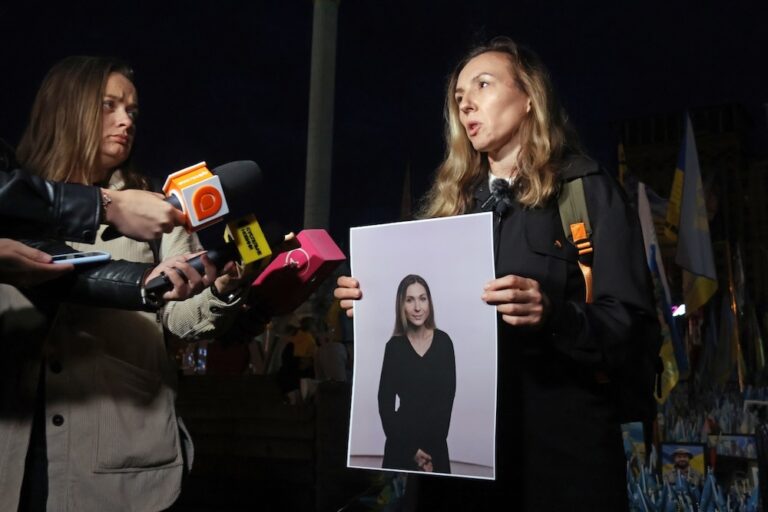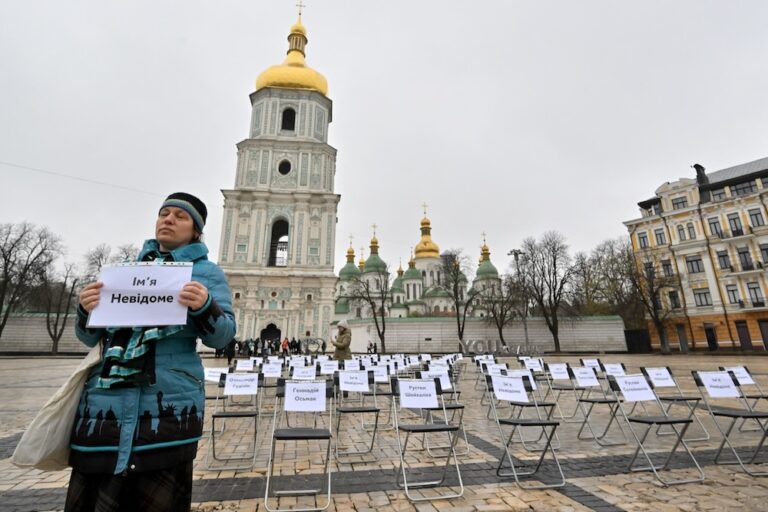(RSF/IFEX) – On 18 April 2002, RSF protested the jailing of journalist Oleg Liachko for allegedly libeling a “senior official from the Chief State Prosecutor’s Office” and called for his immediate release. “The chief state prosecutor, Mihailo Potebenko, is clearly behind the legal pursuit and arrest of Liachko, one of his harshest critics,” RSF Secretary-General […]
(RSF/IFEX) – On 18 April 2002, RSF protested the jailing of journalist Oleg Liachko for allegedly libeling a “senior official from the Chief State Prosecutor’s Office” and called for his immediate release.
“The chief state prosecutor, Mihailo Potebenko, is clearly behind the legal pursuit and arrest of Liachko, one of his harshest critics,” RSF Secretary-General Robert Ménard said in a letter to Ukrainian President Leonid Kuchma, accusing Potebenko of being “the main obstacle to Ukraine’s respect for its commitments to human rights.” Ménard charged that Potebenko was “directly responsible for the obstruction in the past two years of investigations into the murders of journalists and serious physical attacks on them.” Ménard appealed to Kuchma to see to it that the journalist was freed at once, “so he can escape the arbitrary behaviour” of Potebenko’s office. The secretary-general also noted that imprisoning journalists for expressing opinions is “contrary to all European standards.” He said RSF would be “at Liachko’s side” in the weeks to come.
RSF learned that the journalist, who is editor-in-chief of the privately-owned weekly “Svoboda”, was arrested on 15 April by police in Cherkassy when he went to the local State Prosecutor’s Office to answer allegations of libel against a “senior official” from the chief prosecutor’s office. He was charged with “abuse of authority”, “violating the right to privacy” and “resisting the police”.
The driver of the vehicle delivering the newspaper was attacked on 24 March and most copies of the weekly were destroyed (see IFEX alert of 3 April 2002).
A court in the Minsky district of Kiev handed down a two-year suspended prison sentence against Liachko on 7 June 2001 and banned him from editing his newspaper because of articles he wrote in 1997. On 18 October, the Kiev Appeals Court quashed his conviction on grounds that new clauses of the penal code had come into effect the previous month, eliminating libel as a criminal offence. Earlier, on 31 March 2000, Liachko was attacked by two strangers in the stairwell of his apartment building in Kiev and was hospitalised with head injuries.
RSF recalls that violence and threats against the media in Ukraine increased in 2001, despite pressure from the Council of Europe. The Chief State Prosecutor’s Office and the Interior Ministry are both blocking any serious inquiry into the murder in 2000 of journalist Georgy Gongadze, who had accused them of threatening him (see alerts of 30 January 2002, 28, 19 and 13 September, 5 June, 16 May, 27 April, 26, 22 and 16 March 2001 and others). Despite the decriminalisation of libel, the State Prosecutor’s Office is still quick to demand heavy penalties against media criticism of powerful figures in politics, the judiciary and the business world.


